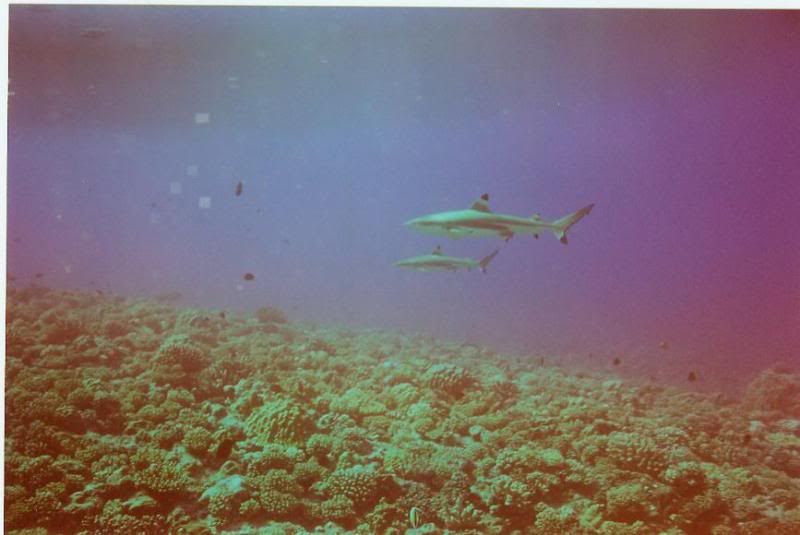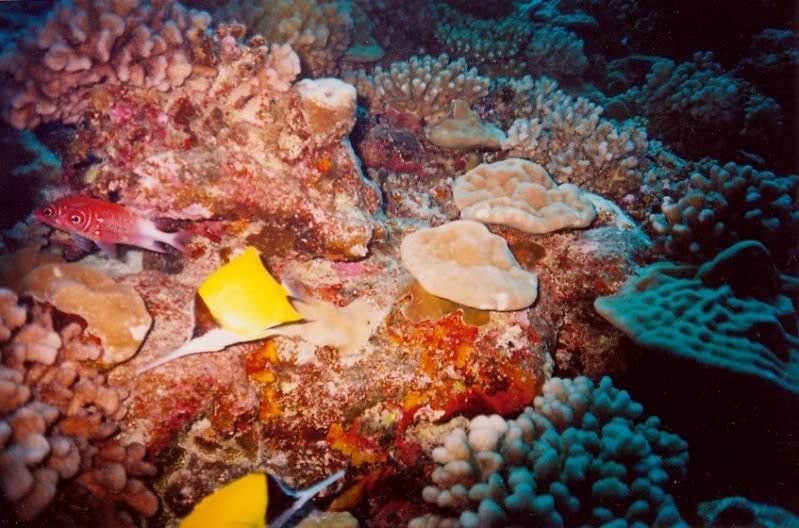Luiz Rocha
Salty Dog
I'm still waiting for someone to talk about the "new" reefs that are being discovered!
What new reefs?
I'm still waiting for someone to talk about the "new" reefs that are being discovered!
I love the fact that all of these "scare tactic" news stories talk about how many thousands of years it takes for corals to grow. But, they don't really have any good scientific research or data of reefs 1000's of years ago.
So, here's a question for you.....Bikini Atoll was nuked in the 1950's. Pretty sure we can consider that to be complete destruction of the reef. Explain 8 meter tall corals in 60 years! An excerpt:
"Richards and colleagues report a thriving ecosystem of 183 species of coral, some of which were 8 metres high. They estimate that the diversity of species represents about 65% of what was present before the atomic tests"
I not only know what you are talking about, but I have actually dove in bikini. The 8 meter tall corals did not grow in 60 years. They were either not affected by the explosions, or are new growth over old colonies. I saw this, with my own eyes. I also saw the crater of the Castle Bravo test, the largest nuclear explosion ever set off by the US. There is absolutely no coral left around it.
I think you both missed the point I was trying to make. I am not disputing that man has had a negative impact on many reefs around the world. I am disputing the assumption that man is destroying every reef around the world.


Didn't miss the point, and I exepect Luiz didn't either. We're simply trying to point out that the historical data needed to prove those reefs are just as healthy as they were a decade, two decades, or longer ago does not exist. These reefs are far from new, just new to being publicly known. While it is good to think they might be just as healthy as they were 100 years ago, the evidence for that does not exist yet...due simply to a lack of looking for it as yet. Now having that work down to prove things one way are another would certainly be enlightening. Especially has all but one (the Gulf Coast FL reef) are in fairly remote locations.
Agreed. When I say "new" in this case, I mean newly discovered. The exception being the "new" staghorn corals that have been popping up in areas where they were not historically (Broward County in the late 1990's, Palm Beach and Martin Counties in the last decade and most recently the Flower Banks off of Texas).
Don't you think the causes for the expansion of this particular coral species into previously uncolonized areas could be beneficial to other reefs around the world?
And as far as my references to "newly discovered" reefs....obviously science has not surveyed all of the reefs in the world. So, how could anyone scientifically say that all of the coral reefs are disappearing or in trouble?
I've heard that too (warming trends). But I've seen no research data to back it up. (but, to be honest, I haven't looked that hard).
So, in your opinion, do you think this is isolated to the east coast of Florida due to the Gulf Stream or is this worldwide? If world wide, shouldn't we start hearing about new coral growth southward across Africa and Australia and northward off of Asia and perhaps into the Mediterranean. What about the western Americas (northern S. America and Central America)?
Anyone who really wants to know how reefs WORLDWIDE are doing should subscribe to noaa's 'coral-list' server.
If every single combustion engine on the planet stopped tomorrow, it wouldn't make one iota of difference- the damage is now done-all (tropical)reefs will be dead,completely dead, in less than 50 yrs. Once the reefs go, the oceans go. (Vis-a-vis what we depend on the oceans for as far as food,namely fish). Once the oceans go, we'll prob'ly follow.
There is indeed an absolute consensus in the scientific community that man made rapid climate change is an irrefutable fact- regardless of what some oil co. pseudo scientist shill claims/says
The final death sentence was just passed in Durban at the recent climate change protocol conference.
